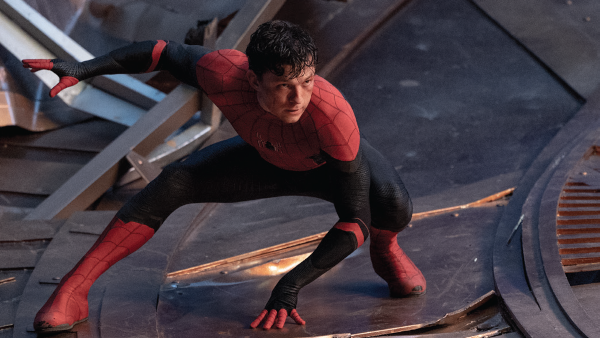Sony, Spider-Man, and the Statue of Liberty

Why on earth would Sony do such a thing? Spider-Man: No Way Home cost hundreds of millions of dollars to make and to market, and I am guessing Sony would appreciate a certain ROI (Return on Investment). Yes, the film has already upwards of $2 billion and counting, was the highest grossing film of 2021, and is the sixth-highest-grossing film of all time. But still — why walk away from those extra hundreds of millions?
As you might guess, the reason has to do with China. As you might also guess, the reason is censorship. Receiving permission to show a movie in China is hardly a fait accompli. In this case, reportedly, Chinese authorities did not approve of the film’s finale. In particular, the final extended scene takes place on and around the Statue of Liberty. Apparently, Chinese censors initially demanded that Sony remove all images of the statue because of perceived patriotic connotations. Sony refused. Perhaps as an accommodation, authorities then reportedly asked for more subtle changes; in particular, it would be acceptable to partially obscure otherwise clear images of the statue. After deliberation, Sony declined to make any changes, and thus the film will not be shown in China. Various sources estimate that Sony will lose anywhere from $170 million to $340 million.
This kind of censorship is anathema to most Americans; most of us view freedom of speech as a bedrock principle. But the rules are different in China. If the government objects to a movie’s content, it can deny its entry into theaters. It is important to note that some studios willingly edit their movies so they can be shown in China.
In the interests of actual journalism, I watched Spider-Man: No Way Home last night. As noted, the climax takes place on the Statue of Liberty. To avoid any spoilers, I will simply say that the statue is fairly obscured, perhaps as a precaution on the part of the filmmakers to avoid precisely this kind of censorship problem. Deleting the statue entirely, as the censors may have wished, would have been impossible, or at least cost-prohibitive in terms of CGI. At most, perhaps sections of many shots could have been blurred or dimmed — a clumsy solution. There is one brief, final “beauty” shot of the statue which is probably the visual that was most egregious to the censors. While the other statue shots would have been difficult or impossible to work around, this one, the one that most obviously could be construed as being patriotic, would have been easy to cut and perhaps that would have given Sony permission to release the film in China.
You might recall that this is not the first time that a Marvel movie has run afoul of Chinese censors. Eternals, Shang-Chi and the Legend of the Ten Rings, and Venom: Let There Be Carnage were also not approved for release in China. And, it appears that Doctor Strange in the Multiverse of Madness might not be shown either. In any case, Sony has decided that the Statue of Liberty must stay. I cannot say if Sony’s decision was based on higher principles, or if the studio was simply afraid of the blow back if Americans learned that Sony had willingly demoted the Statue of Liberty in the Chinese release. In any case, the company’s financial loss is undeniable.
Is the Statue of Liberty a patriotic symbol? It is certainly iconic of America. But it is less provocative than, say, another superhero’s motto, “Truth, Justice, and the American Way,” a phrase from the 1950’s Adventures of Superman TV show. You might fondly remember actor George Reeves, hands on hips, standing proudly before the Stars and Stripes. Yes, Lady Liberty is a symbol of national pride. On the other hand, would American social media censors object to scenes showing The Great Wall of China?
The more interesting question is how American movie studios will respond to the rules that Chinese censors impose. Imagine that you are a Hollywood executive. You are well aware of the financial losses that Marvel and Sony have incurred on this and other films. A screenplay comes across your desk and it is brilliant. But it has a scene that is very American, very patriot. Would you ask the screenwriter to alter the scene? In other words, would you make the movie as written or preemptively bow to censorship?
Before you answer, consider that Superman’s motto, “Truth, Justice, and the American Way,” was recently changed to “Truth, Justice, and a Better Tomorrow.” Acknowledgment of the global appeal of the character, or self-censorship? You decide.
A final note: The Statue of Liberty represents Libertas, the Roman goddess of freedom, who was particularly revered by former slaves who had been freed by Roman manumission. Do Chinese censors object to the iconography because it represents America, or because it celebrates freedom?
Ken C. Pohlmann is an electrical engineer specializing in audio topics as a consultant and writer. He is Professor Emeritus at the University of Miami.





























































